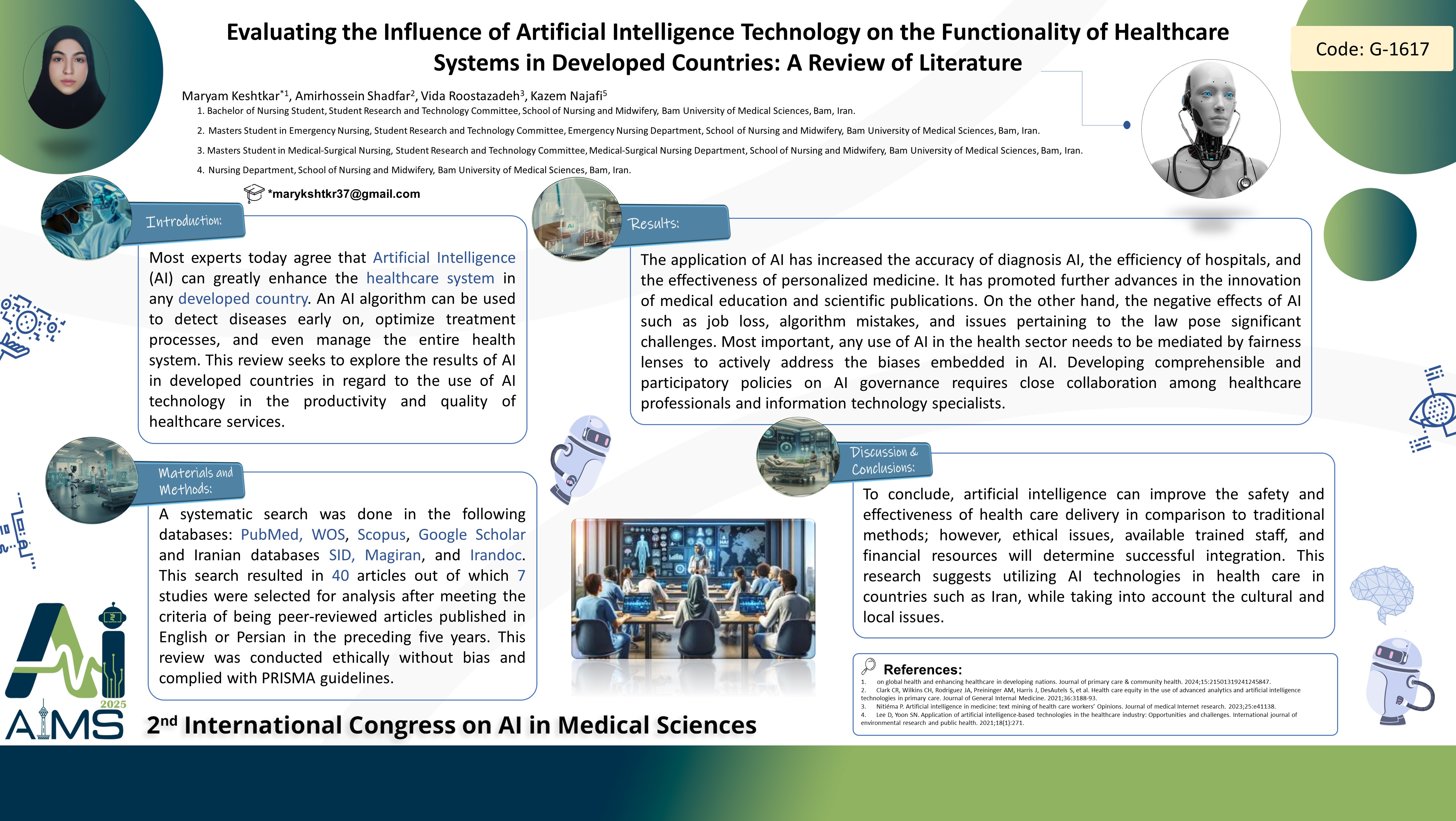Evaluating the Influence of Artificial Intelligence Technology on the Functionality of Healthcare Systems in Developed Countries: A Review of Literature
Code: G-1617
Authors: Maryam Keshtkar * ℗, Amirhossein Shadfar, Vida Roostazadeh, Kazem Najafi
Schedule: Not Scheduled!
Tag: Health Policy, Law & Management in AI
Download: Download Poster
Abstract:
Abstract
Introduction: Most experts today agree that Artificial Intelligence (AI) can greatly enhance the healthcare system in any developed country. An AI algorithm can be used to detect diseases early on, optimize treatment processes, and even manage the entire health system. This review seeks to explore the results of AI in developed countries in regard to the use of AI technology in the productivity and quality of healthcare services. Methods: A systematic search was done in the following databases: PubMed, WOS, Scopus, Google Scholar and Iranian databases SID, Magiran, and Irandoc. This search resulted in 40 articles out of which 7 studies were selected for analysis after meeting the criteria of being peer-reviewed articles published in English or Persian in the preceding five years. This review was conducted ethically without bias and complied with PRISMA guidelines. Results: The application of AI has increased the accuracy of diagnosis AI, the efficiency of hospitals, and the effectiveness of personalized medicine. It has promoted further advances in the innovation of medical education and scientific publications. On the other hand, the negative effects of AI such as job loss, algorithm mistakes, and issues pertaining to the law pose significant challenges. Most important, any use of AI in the health sector needs to be mediated by fairness lenses to actively address the biases embedded in AI. Developing comprehensible and participatory policies on AI governance requires close collaboration among healthcare professionals and information technology specialists. Conclusion: To conclude, artificial intelligence can improve the safety and effectiveness of health care delivery in comparison to traditional methods; however, ethical issues, available trained staff, and financial resources will determine successful integration. This research suggests utilizing AI technologies in health care in countries such as Iran, while taking into account the cultural and local issues.
Keywords
Artificial Intelligence, Healthcare System, Developed Countries
